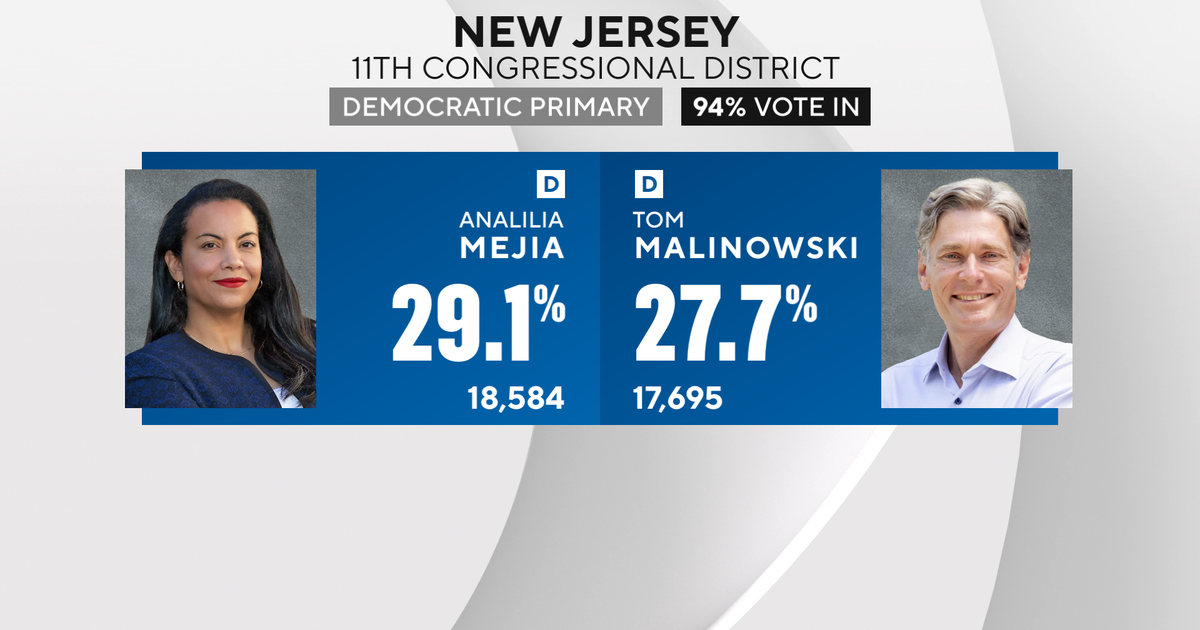Transcript: Rep. Jim Himes on "Face the Nation," October 6, 2019
The following is a transcript of an interview with Representative Jim Himes that aired Sunday, October 6, 2019, on "Face the Nation."
MARGARET BRENNAN: We turn now to a top Democrat on the House Intelligence Committee. Connecticut Congressman Jim Himes who joins us from Stamford. Congressman welcome to "Face the Nation."
REPRESENTATIVE JIM HIMES: Good morning Margaret.
MARGARET BRENNAN: You just heard Senator Blunt there. I want to ask you the same question in regard to the whistleblowers that we are now hearing there are multiple who have come forward in relation to that initial complaint. Has your committee heard from them? What happens next?
REP. HIMES: So we've obviously heard not even from the initial whistleblower whose identity is still hopefully being protected, but we've obviously heard all about the complaint and the inspector general has told us all of the background around that, but no we have not heard from a second. But you know Margaret, this- this actually highlights an interesting aspect of this whole mess which is as much as Donald Trump is raging against Adam Schiff and Nancy Pelosi and the Democrats and subpoenas like cookies, his problem is not with the Democrats. It's not with people like me. We're sort of sitting here watching the information flow out of the White House, damning information, facts that are undisputed. What's happening Margaret is that people around the president, professionals who are in the Oval Office, who are in the situation room, are watching what is happening and finally saying, "my God this cannot happen anymore." And they are coming forward either as whistleblowers- as apparently as many as two people are going to do officially, but also leaking which by the way is not a good thing. But an awful lot of this story is coming out because people who are in the room are talking to The Washington Post and The New York Times and- and to others--
MARGARET BRENNAN: Just- just--
REP. HIMES: So the president's real problem is that his behavior has probably- has finally gotten to a place where people are saying enough.
MARGARET BRENNAN: Just to clarify, you said people who are in the situation room. Are you saying that these people when they have firsthand knowledge were on the call?
REP. HIMES: What I'm saying is that there were stories before we even saw the original whistleblower complaint in the press about this whistleblower complaint that were coming from sources that had firsthand knowledge. So I- you know because they were press sources, I don't know who they are. You know again leaking to the press is not the way to do this--
MARGARET BRENNAN: Right.
REP. HIMES: --The way to do this is to do what the whistleblower did. But my point is whether they were in the room or had first hand knowledge or talked to somebody who had firsthand knowledge, people who were in the very core of all of these events are saying this can't happen anymore. So again, his- the president's problem is not with the Democrats or with Adam Schiff. It's with the fact that the people around him are saying we can't tolerate this anymore.
MARGARET BRENNAN: Is the impeachment inquiry going to stay narrowly focused on this phone call and this issue with Ukraine or do you see this scope widening?
REP. HIMES: I think it's likely to stay narrowly focused on what is a threat to our national security. And look there's any number of issues you could take up with this president, but you know Americans- you know if you go back and you reread the Mueller Report, there's some awful, awful stuff in there where the president is ordering investigations to end or you know ordering somebody to go tell the Department of Justice to stop--
MARGARET BRENNAN: Right.
REP. HIMES: --that investigation. Stuff that would have resulted in Barack Obama being impeached 30 times over. But I do think that the Speaker of the House understands that there is- and remember impeachment is at heart a political rather than a legal thing. That's why it lives in the Congress as opposed to the court system. I think that Speaker Pelosi understands that Americans feel in their bones, in their heart, a challenge to our national security. This kind of corruption- they understand that a lot better than they understand obstruction of justice, a refusal to abide by congressional subpoenas, which are also very very serious offenses that the president has committed--
MARGARET BRENNAN: S- So- so to that point, if you believe that's where public opinion is, you know Republicans say if Democrats are so certain and so unified, why don't they put this to a vote to go ahead with the inquiry? Understanding that's not required of you, why not at least kill that talking point for them?
REP. HIMES: Well you know if you try to spend your time killing Republican talking points, you'll do nothing else. I mean I heard it from Senator Blunt just now. You know leaders ask other leaders for- for- for favors. Yeah that may be true. I'm sure presidents have in the past asked other leaders for favors. Traditionally those favors have not been research my political opponents-
MARGARET BRENNAN: Right. Are the votes there though?
REP. HIMES: --And so I- I- use- I'm sorry?
MARGARET BRENNAN: Are there enough votes though? I mean, are Democrats truly unified?
REP. HIMES: If- if Speaker Pelosi did in fact move forward with a floor vote on a- on actually proceeding with- with an investigation, which as you point out is not required here, there's no question in my mind that she would have the votes. Yes.
MARGARET BRENNAN: I- I want to ask about these subpoenas that the House committees have put forward to the White House, to the secretary of state. In reading through this subpoena there are a lot of sensitive national security related documents that are likely to just be covered by executive privilege. What do you actually expect reasonably to the committee to actually get a hold of?
REP. HIMES: Well, that's a- that's a great question, right? And one of the things that we need to rebuild in this country in the post-Trump era is what actually executive privilege means. Executive privilege does not mean that you get to, you know, hide embarrassing documents. Executive privilege, and you know this Margaret, stems from the idea that the president ought to be able to get advice from his advisers that is not subsequent to second guessing or- or oversight by Congress down the road. It doesn't mean that you move a- a really embarrassing transcript off of a traditional server onto a highly classified server because you understand that if that transcript got out there in the public, it would be a real problem. It's not about hiding embarrassment. It's not about keeping people from testifying that might actually produce uncomfortable facts. So again, I expect this White House to continue to stonewall attempts to get at the truth. This is what they've done from the very beginning. But again, my Republican friends need to remember that there will be a Democratic president someday and they will want to do oversight of that Democratic president. So as they rise to the defense of Donald Trump, they need to remember that they're establishing precedents here that are going to really come back to bite them down the road.
MARGARET BRENNAN: All right, Congressman Himes, thanks for your time. We will be back in one minute with a lot more "Face the Nation." Don't go away.



